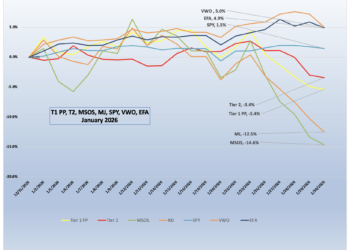The non-payment of a secured $35 million credit agreement between rap artist Snoop Dog’s cannabis venture capital firm, Casa Verde Capital, and a Santa Barbara-based cash management firm for cannabis companies known as El Capitan Advisors, has led to litigation in California state court that alleges the firm engaged in a sophisticated money laundering scheme using its cannabis business clients’ cash deposits.
The litigation, which indirectly involves at least five well-known cannabis dispensary operators, including two publicly-traded companies, has caught the attention of state and federal regulators, according to two people involved in the situation. One of the agencies includes the Nevada Cannabis Compliance Board, which can refer activity to the U.S. Department of Justice and the Securities and Exchange Commission. Sources at the regulator indicate the SEC has opened a preliminary inquiry into the El Capitan seizure.
The events surrounding the sudden late 2023 collapse of the money manager has caused at least one of the companies, Planet 13 (PLNH), a Canadian Stock Exchange-listed operator of dispensary “superstores” in California, Nevada and Illinois, to withdraw its accounting statements for the past three years in the face of losses that could top $16 million.
According to court documents other El Capitan clients include: Curaleaf Florida (CURLF), Kind Farms Corp, Gro Capital, BlueOx, Pinnacle, Craft 1861 Global, Bluefin Group, Texas Originals, US Eagle, Seven Point Supply, and Key Investment Partners.
El Capitan Advisors is a registered SEC investment advisor firm which in recent SEC filings claims to manage $7.4 billion of assets. The firm got its start in 2019 with $1 million in seed money from Los Angeles-based Casa Verde, the cannabis-dedicated investment firm known for its celebrity co-founder, in return for a 20% stake in the private company, according to SEC filings. Andrew Nash is listed in the firm’s filings as El Capitan’s CEO and majority owner, with Casa Verde and other outside investors holding at least a 25% stake. Casa Verde managing partner Karan Wadhera served as an independent director at El Capitan from its inception in 2019 till the end of last year.
The $10 Billion Loophole
El Capitan Advisors operated for about three years, attracting cannabis clients to hold their cash proceeds. Because the firm operated as a registered advisor and not a financial institution, it was not bound by FinCEN anti-money laundering (AML) and know-your-customer (KYC) regulations and therefore could freely accept deposits from cannabis companies without triggering reporting of the transfers to federal regulators. The firm reportedly grew to manage up to $10 billion in assets at its peak.
Then early last spring, Nash approached Wadhera with an astounding offer: El Capitan would buy back Casa Verde’s 20% stake in the firm, valued three years earlier at $1 million, for $35 million. One insider said they thought Nash made the offer to get Wadhera, who had been pressuring Nash for months for financial details of the firm’s operations, off his back. Casa Verde not unsurprisingly agreed to Nash’s offer, and two short-term promissory notes totalling the purchase price were executed on April 7, 2023, between the parties.
But the deal almost immediately fell apart as the note payment deadlines of April 14 and May 24, 2023, passed without any payment forthcoming from El Capitan and Nash. Casa Verde sued for breach of contract and secured a judgment against Nash and his firm for $35.7 million in damages and interest. Casa Verde used the judgment to initiate the seizure of El Capitan’s accounts at Bridge Bank, a subsidiary of Western Alliance Bank, in Costa Mesa, Calif., in late August. Bank correspondence indicates that El Capitan had 11 active accounts at Bridge Bank totalling $12,149,322 at the time.

Andrew Nash told CRB Monitor in an interview in December that he didn’t know Casa Verde was going to seize his Bridge bank accounts and that “other accounts” had been seized including his personal accounts. But a review of court documents and interviews with people involved in the situation show Nash had ignored Casa Verde’s warnings it would use the courts to collect its debt. When reality set in and Nash’s allegedly commingled client money ended up in the Orange County Sheriff’s escrow account on behalf of Casa Verde, Nash apparently panicked.
Lack of Controls, Commingling Alleged
Court documents and interviews with people who worked with El Capitan reveal Nash marketed his company as a vehicle for cannabis companies to get cash off their balance sheets and set up deposit accounts without the time-consuming and often disqualifying AML/KYC compliance checks that are normally required of banks and credit unions. Nash performed the cash management service for a monthly fee of $250 per account plus 0.1% of the deposits held in each bank account, according to a client agreement reviewed by CRB Monitor.
Sources say Nash told clients he was setting up trust accounts via Bridge Bank, and was a registered escrow agent. But since Casa Verde initiated litigation against Nash’s firm in the summer of 2023, evidence has come forward that Nash was never a registered escrow agent, according to court documents and interviews. On top of that, the court ordered $35.7 million seizure of El Capitan’s bank accounts in late September resulting from the litigation exposed a lack of controls between Nash and his clients in which customer funds were commingled and clients lacked the ability to withdraw their money with their own signatures.
Over the last three months, who actually owns the millions in cash that cannabis companies transferred to El Capitan has been hotly litigated in two lawsuits in the Superior Court of the State of California, County of Los Angeles, West District. Nash, his wife Jamie, and Karan Wadhera have been named personally as defendants in the alleged fraud, along with the companies they run. Publicly traded Planet 13, an operator of dispensary “superstores” in the Las Vegas, Los Angeles and Chicago metro markets, has claimed in securities filings since November that at least $16 million of its cash managed by El Capitan has been stolen or is missing.
Cannabis banking professionals suggest that cash management services are sometimes needed by cash-heavy cannabis companies with limited options for their deposits. One reason is that small credit unions provide much of the day-to-day deposit and checking services for cannabis businesses, but many can’t accept all their cash without throwing them out of compliance with their reserve-ratio and customer-concentration policies. So these businesses either need to spread cash deposits around or hire someone – a cash management firm – to do it for them.
It’s unknown how many other cannabis companies that used El Capitan’s cash management business have suffered losses, in what one Nevada state regulator told CRB Monitor “reads like an apparent Ponzi scheme.” During discovery in the Casa Verde lawsuit, court records and regulatory filings show Planet 13, through its holding company and subsidiaries, actually transferred to El Capitan at least $39 million in cash over the past three years.
Planet 13 Forced to Restate
During a three-month investigation into the El Capitan asset seizure by CRB Monitor, Planet 13 executives have repeatedly declined to answer questions or confirm details of the court-ordered seizure of the company’s cash, which it announced in a press release in late November. In it, the company stressed that the seizure would not have a material impact on the company. Planet 13 reported more than $38 million in cash from $104.5 million in net revenues for 2022, its most recent full year filing. In late January, the company announced it was retracting its financial statements back to 2021 due to the El Capitan seizure. On February 20, Planet 13 took a $16 million impairment charge, according to a SEDAR filing,
The El Capitan imbroglio threatens to derail an aggressive expansion push by Planet 13, notably its planned $49 million acquisition of Florida medical dispensary operator VidaCann. When cannabis stock analyst Pablo Zuanic first spoke to CRB Monitor after Planet 13’s November 17 announcement, he was unfazed by the prospect of the El Capitan seizure.
13, notably its planned $49 million acquisition of Florida medical dispensary operator VidaCann. When cannabis stock analyst Pablo Zuanic first spoke to CRB Monitor after Planet 13’s November 17 announcement, he was unfazed by the prospect of the El Capitan seizure.
“In a worst-case scenario this may hamper its ability to expand VidaCann (from the base of 26 stores they are acquiring) or make acquisitions in Nevada,” he said, “But the company’s near term expansion plans will not be affected, namely, expansion of the superstore in Vegas; opening of the Illinois store; [and] closing of the VidaCann (Fla.) deal.”
The purchase of VidaCann, which was expected to be closed in December or January, has now been delayed, with the company now predicting a closing by April. In late January Planet 13 announced that it was selling its existing Florida subsidiary and licenses for $9 million in cash to fund the VidaCann acquisition, which is currently structured largely as a stock purchase that would leave VidaCann’s owners with a 26% stake in Planet 13.
Casa Verde Alleges Planet 13 Has “Unclean Hands”
Court documents show Casa Verde agreed to return $3.4 million of the $5.5 million it seized in one of the Bridge Bank accounts that Planet 13 claimed in court filings belongs to them. Casa Verde has been arguing in court that Planet 13 has “unclean hands” which should bar them from any recovery in the Bridge Bank accounts. Also it has made the argument that Planet 13 doesn’t even own that money because a valid trust account was never set up and the account is in El Capitan’s name (and tax ID) and only El Capitan employee’s have signature power on the account.
Bridge Bank, via its parent Western Alliance, told Casa Verde in a letter seen by CRB Monitor that the account “could” belong to Planet 13 because it was labeled by El Capitan as “Business MMA” in the opening account docs. MMA is a related subsidiary according to Planet 13.
“Planet 13 submits no evidence that the Bank performed any of the federally mandated KYC checks on Planet 13. Instead, money was laundered through multiple different entities (that Planet 13 claims, but has not proven, are ‘subsidiaries’), multiple banks, and multiple bank accounts, ultimately ending up in the 4664 Account owned by El Capitan,” wrote Casa Verde’s attorney Elliot C. Harvey Schatmeier of Los Angeles-based Bird, Marella, P.C., in a November 27 opposition motion to Planet 13’s third-party claim.
“Even accepting everything Planet 13 claims as true (despite its own evidence to the contrary), Planet 13 appears to have engaged in this byzantine series of transactions, at least in part, to avoid federally mandated KYC checks. It cannot as a matter of law rely on any purported ‘trust’ or fiduciary relationship created by these transactions in support of its Claim,” Schatmeier said in the motion.
Additionally, during his initial deposition with Casa Verde lawyers Andrew Nash refused to answer questions as to Planet 13’s third party claim, out of purported fear of self-incrimination, according to motions filed in the Casa Verde breach of contract lawsuit.
A spokesperson for Western Alliance Bank declined to comment on the El Capitan seizures, citing the bank’s policy of not commenting on pending litigation.
Planet 13 Posts Cash Flow Losses
Zuanic says Planet 13 is among seven MSOs with negative operating cash flow and the company’s free cash flow is estimated at -$37.775 million for the company’s fiscal year of 2023; the estimate includes the $22 million of cash Planet 13 says was misappropriated by El Capitan. For the first quarter of 2024 FCF estimate is -$2.688 million and free cash flow takes a -$6.138 hit in the second quarter due to acquisitions.
Adjusted EBITDA margins improved from -2.3% Q2 2023 to .9% in Q3 2023 and is estimated to be .7% for the fourth quarter. Zuanic, a former Cantor equity analyst, has an Overweight rating on the stock, which trades on the Canadian Stock Exchange and OTC Markets, as of January 31. According to Zuanic’s updated research “the stock has gone from trading in line with the MSO group average to a discount (1.6x proforma vs. 2.2x for the MSO average; almost a 30% discount), and it is down 10% since the unfortunate El Capitan news flow broke.”
Planet 13 announced on January 22 that the sale of the medical cannabis licenses it holds in Florida would help it move the VidaCann closing along, which is required for the company to take over the VidaCann Florida licenses. When the VidaCann deal closes, Planet 13 will issue 78.5 million shares and pay $9 million in cash and notes, leaving VidaCann’s owners with a 26% stake in Planet 13.
So far, investors seem to be taking the El Capitan revelations in stride. Planet 13 stock has declined around 10% since the El Capitan impairment was announced. The company said in a press release on January 23 it will have to restate financials for 2021, 2022, and for the three quarters reported for 2023 because of the “misappropriated” $22 million from the El Capitan relationship. Zunaic thinks the missing cash news is already reflected in the stock price but warns not to rule out future shareholder lawsuits and higher costs related to the legal efforts to recover the cash. Planet 13 has hired the national law firm Cozen O’Connor to litigate the cases.
Nash Goes Solo and No-Show
On January 17, just days before Planet 13 filed its civil fraud suit naming Nash as defendant, the investment manager cut off all communication with his attorneys. Katherine Fine of Duckor Metzger and Wynne confirmed on February 9 that Andrew Nash is no longer a client and court records now list Nash as representing himself.
CRB Monitor first contacted Nash in early December to discuss Casa Verde’s move to force payment of the $35 million note dating from the April 2023 stock repurchase agreement, after Nash had reportedly misled Casa Verde executives about the payments and forwarded falsified wire documents. Nash said at the time that the Orange County Sheriff’s Office controlled the money from the Bridge Bank accounts that Casa Verde was able to execute seizure against, but that other El Capitan accounts and his own personal accounts had been seized also. Nash didn’t explain who had seized the other accounts.
“They [Orange County Sheriff] froze our operating account and savings account at Bridge Bank – Western Alliance. I also have personal accounts frozen at BB WA. Those funds have already been released to Casa Verde and without letting us know,” Nash told CRB Monitor on November 30. “We do have accounts in other places that have been impacted but those funds are not being held by the OC Sheriff.”
Days before Nash spoke to CRB Monitor his attorneys at Duckor, Metzger and Wynne had told the court that Nash had been hospitalized and couldn’t attend court-ordered depositions aimed at ascertaining where the rest of El Capitan’s money was being held.
Attorneys for Casa Verde have challenged the legitimacy of Nash’s hospitalization and claims that he is mentally unable to answer questions regarding El Capitan’s finances. As a result they asked the court to hold Nash in contempt if he doesn’t show up for discovery hearings to determine where the other company bank accounts are held. Since a postponed January 19 hearing Nash, and his wife and co-defendant Jaime Nash, have failed to show for scheduled court proceedings.
Calls and emails last week to Nash by CRB Monitor were not returned. Andrew Nash also didn’t show up for a meeting in late January with the Santa Barbara lawyer that was hired to represent his wife in the Planet 13 civil fraud case, according to court filings.
Planet 13 Claims Casa Verde Culpable
Casa Verde and Planet 13 have had their two lawsuits combined under one judge in State Superior Court in Santa Monica, Calif. The parties were back in court February 16 to argue Planet 13’s demand for a temporary restraining order to stay the original court order that allowed Casa Verde to seize any funds in bank accounts controlled by El Capitan Advisors. Planet 13 was not successful in its motion. Of the $12 million Casa Verde has seized from El Capitan’s bank accounts so far, Planet 13 says $5.4 million belongs to it and should not be considered assets of El Capitan.
Other cannabis companies which parked cash with Nash have made third party claims in the original Casa Verde case, including Gro Cap, a London-based company, who recently filed a claim for around $100,000.
According to a lawsuit filed recently by Planet 13 in Superior Court, Nash was pushing the company last year to give El Capitan more cash to manage at the same time Casa Verde was suing for a breach of the credit agreement. This included Nash allegedly offering up fake bank records from BMO Bank to confirm where some of Planet 13’s new money was being held.
Planet 13 doesn’t think Nash acted alone. It has accused Karan Wadhera of aiding in

Nash’s fraud, or at the very least being negligent as an independent board member in not inspecting or verifying how the cash management business was being run. The lawsuit says Wadhera should have known El Capitan’s business was insolvent at the time of the stock buyback deal. At the heart of Planet 13’s claims is the notion that Casa Verde and Wadhera should have known that a $35 million return on a two-year, $1 million investment was too good to be true.
David Feldman, a corporate finance attorney and principal at cannabis consultancy Skip Intro Advisors, told CRB Monitor that Wadhera could be liable for at least negligence in his role as an outside director if Planet 13 can prove inaction from Wadhera. Interviews with people directly involved in the situation say they never saw Wadhera exert managerial control over Nash, but as a director regularly sought financial updates. Both Casa Verde and Planet 13 have accused Nash in court filings of doctoring bank account records and wires sent to the company.
“My clients were given profit and loss financials by Nash that showed El Capitan operating as a healthy company. Mr. Wadhera had no knowledge of the alleged fraud Planet 13 is accusing the company of,” Schatmeier, Wadhera’s attorney, told CRB Monitor.
Schatmeier said that Wadhera had been demanding to see El Capitan’s books and records but Nash kept deflecting. He said Casa Verde’s partners thought it was one of the reasons Nash offered to buy back the firm’s 20% stake in El Capitan at a 35x premium.
Planet 13 Fails to Halt Funds Seizure
Investors in the cannabis market are watching to see if Casa Verde backs down and relinquishes the funds they have seized that allegedly belong to El Capitan’s clients. But because of Nash’s lack of controls in setting up client accounts with banks like Bridge Bank, Casa Verde has a colorable argument that some of El Capitan’s clients don’t legally own the money in the accounts; or shouldn’t own it because they were violating FinCEN and Know Your Customer banking laws and rules, according to industry experts and attorneys who spoke with CRB Monitor.
California state court judge H. Jay Ford III ruled in an emergency hearing on February 16 requested by Planet 13 that Casa Verde could continue its collection effort on El Capitan’s bank accounts. The hearing was seen by some industry experts as a “hail Mary” attempt to halt the further seizure of funds from El Capitan, and as a show of effort for shareholders left wondering why the company turned over millions to an alleged fraudster.
A special receiver has been appointed to locate the millions Planet 13 gave El Capitan. As Casa Verde continues its own collection efforts it has to report its findings to the special receiver. Andrew Nash was ordered to turn over all business records and communications to the receiver. It’s unclear if Nash will abide by the order given that he did not attend the hearing. Nash, his wife Jaime and Karan Wadera were ordered to appear again in court on March 15.












